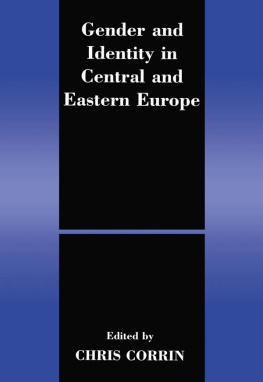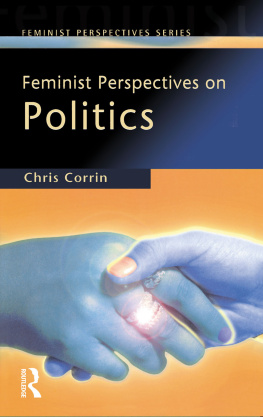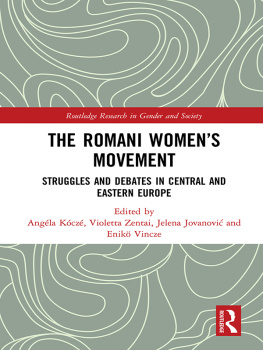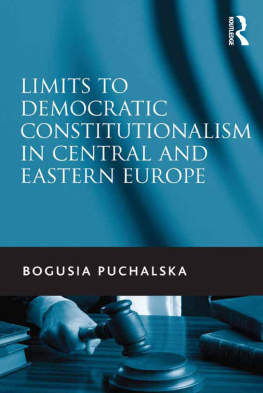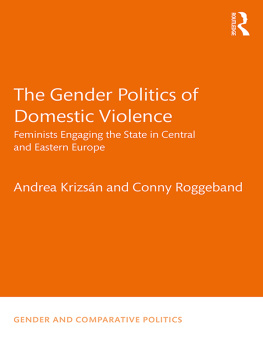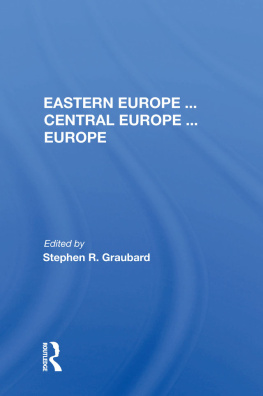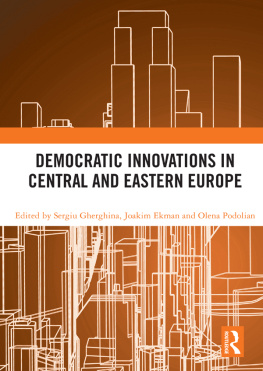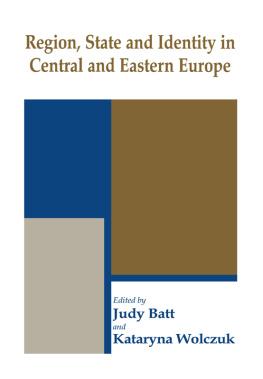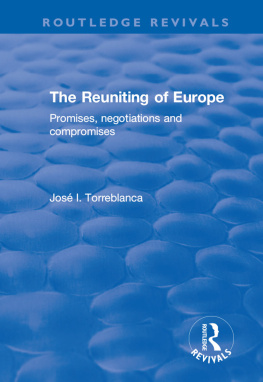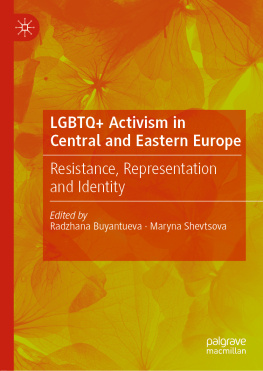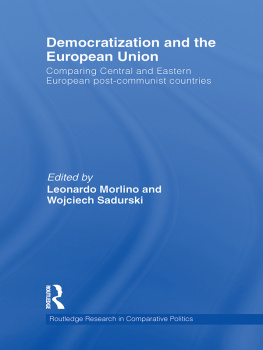Chris Corrin - Gender and Identity in Central and Eastern Europe
Here you can read online Chris Corrin - Gender and Identity in Central and Eastern Europe full text of the book (entire story) in english for free. Download pdf and epub, get meaning, cover and reviews about this ebook. City: London, year: 1999, publisher: Routledge, genre: Science. Description of the work, (preface) as well as reviews are available. Best literature library LitArk.com created for fans of good reading and offers a wide selection of genres:
Romance novel
Science fiction
Adventure
Detective
Science
History
Home and family
Prose
Art
Politics
Computer
Non-fiction
Religion
Business
Children
Humor
Choose a favorite category and find really read worthwhile books. Enjoy immersion in the world of imagination, feel the emotions of the characters or learn something new for yourself, make an fascinating discovery.
- Book:Gender and Identity in Central and Eastern Europe
- Author:
- Publisher:Routledge
- Genre:
- Year:1999
- City:London
- Rating:5 / 5
- Favourites:Add to favourites
- Your mark:
- 100
- 1
- 2
- 3
- 4
- 5
Gender and Identity in Central and Eastern Europe: summary, description and annotation
We offer to read an annotation, description, summary or preface (depends on what the author of the book "Gender and Identity in Central and Eastern Europe" wrote himself). If you haven't found the necessary information about the book — write in the comments, we will try to find it.
Gender and Identity in Central and Eastern Europe — read online for free the complete book (whole text) full work
Below is the text of the book, divided by pages. System saving the place of the last page read, allows you to conveniently read the book "Gender and Identity in Central and Eastern Europe" online for free, without having to search again every time where you left off. Put a bookmark, and you can go to the page where you finished reading at any time.
Font size:
Interval:
Bookmark:
CENTRAL AND EASTERN EUROPE
edited by Ronald J. Hill
edited by Stephen White, Rita di Leo and Ottorino Cappelli
edited by Michael Waller, Bruno Coppieters and Kris Deschouwer
edited by Patrick H. ONeil
edited by Michael Waller and Martin Myant
edited by John Lwenhardt
edited by Terry Cox and Andy Furlong
Central and Eastern Europe
CHRIS CORRIN

FRANK CASS PUBLISHERS
711 Third Avenue, New York, NY 10017
an informa business
journal of communist studies and transition politics; v.
(15)
1. Women Europe, Eastern 2. Women Former Soviet republics 3. Sex role Europe, Eastern 4. Sex role Former Soviet republics 5. Feminism Political aspects Europe, Eastern 6. Feminism Political aspects Former Soviet republics I. Corrin, Chris
305.420947
ISBN 0 7146 8087 7 (paper)
Corrin.
Gender and Identity in Central and Eastern Europe
of The Journal of Communist Studies and Transition Politics (ISSN 13523279)
15/1 (March 1999) published by Frank Cass.
| Chris Corrin |
| Milica Anti Gaber |
| Delina Fico |
| Urszula Nowakowska |
| Chris Corrin |
| Tatyana Kotzeva |
| Elena Omelchenko |
Font size:
Interval:
Bookmark:
Similar books «Gender and Identity in Central and Eastern Europe»
Look at similar books to Gender and Identity in Central and Eastern Europe. We have selected literature similar in name and meaning in the hope of providing readers with more options to find new, interesting, not yet read works.
Discussion, reviews of the book Gender and Identity in Central and Eastern Europe and just readers' own opinions. Leave your comments, write what you think about the work, its meaning or the main characters. Specify what exactly you liked and what you didn't like, and why you think so.

